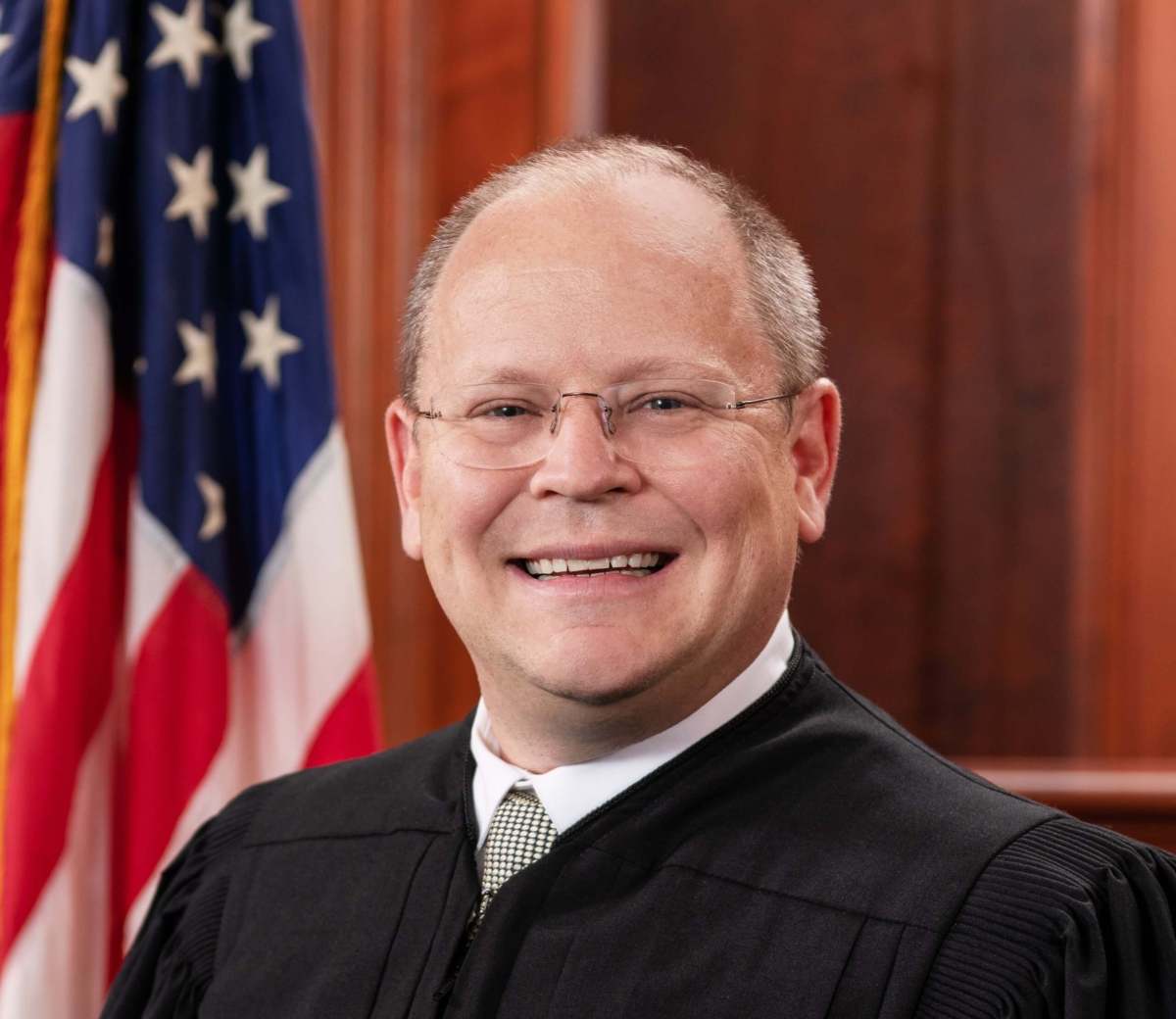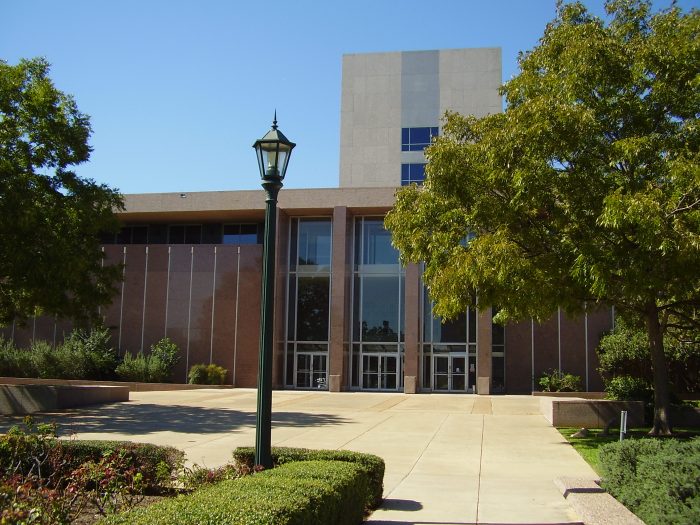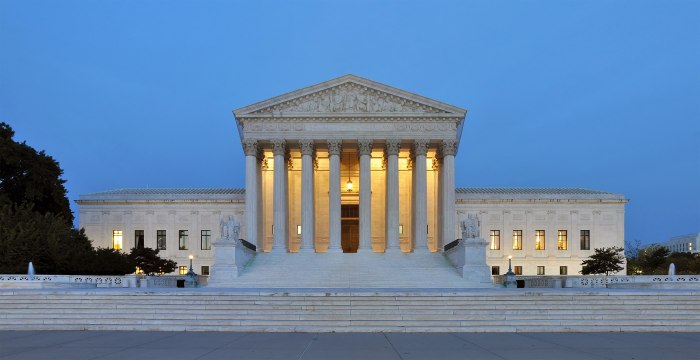A three-judge panel of the Richmond-based U.S. Court of Appeals for the Fourth Circuit ruled on February 22 that B.P.J., a transgender girl, can continue to compete in girls’ sports teams at her West Virginia middle school while she appeals an adverse ruling issued in January by District Judge Joseph R. Goodwin, who rejected her claim that barring her from participating on girls’ teams violated her constitutional and statutory rights.
Judge Goodwin had issued a preliminary injunction in July 2021, ordering the school to let B.P.J. try out for the girls’ cross country and track teams. At that time, he pointed out that she had been taking puberty blockers and thus had not accrued physical advantages that would flow from going through male puberty. Thus, he found, she stood a good chance of proving that excluding her from the girls’ teams would violate her rights to Equal Protection under the 14th Amendment and to be free from discrimination “because of sex” under Title IX of the Education Amendments Act. Weighing the other factors relevant to ordering preliminary relief, the judge concluded that B.P.J. would suffer irreparable injury, and that allowing her to play would not disadvantage other girls.
Her exclusion arose because West Virginia passed a law in 2021 forbidding transgender girls from competing on girls’ sports teams. While B.P.J.’s lawyers claim that the law is facially invalid, the issue in terms of the preliminary injunction, as Judge Goodwin saw it in July 2021, was whether the law was invalid as applied to her, not across the board, so the preliminary injunction was narrowly focused on her right to play and did not automatically prevent the application of the exclusionary law to other transgender girls.
However, by the time pre-trial discovery had been concluded and the parties had filed their arguments for summary judgment, Judge Goodwin had been persuaded in the opposite direction, concluding in an opinion issued on January 5, 2023, B.P.J. was unlikely to win her case on the merits. When he reviewed all the evidence, he determined that transgender girls are not similarly situated to cisgender girls for purposes of sports competition, and that Title IX’s ban on discrimination because of sex should be interpreted to apply to “biological sex,” physical sex identified at birth, and not to gender identity. Having reached this conclusion, Judge Goodwin granted summary judgment to the defendants and ordered that his preliminary injunction be dissolved.
The district court’s opinion seemed contrary to the Fourth Circuit precedent of Gavin Grimm v. Gloucester County School Board (2020), in which the court of appeals held that a Virginia school district violated both Equal Protection and Title IX by barring Grimm, a transgender boy, from using the boys’ restrooms at the county’s high school. That Fourth Circuit opinion followed the reasoning of the Supreme Court in Bostock v. Clayton County, which ruled in the context of Title VII, an employment discrimination statute, that it is impossible to discriminate against somebody due to their gender identity without discriminating because of sex. Most courts consider Title VII precedents on sex discrimination to be heavily persuasive when interpreting Title IX’s ban on sex discrimination in educational institutions.
Judge Goodwin had based his July 2021 decision heavily on the Grimm case, but now he had come to believe that sports competition was distinguishable from the restroom access issue, having accepted the defendants’ argument that Title IX was focused on promoting fairness for girls in school athletics and that it would be unfair, in general, to require cisgender girls to compete with transgender girls, despite the facts of individual situations. He reached this conclusion even though he also concluded that allowing B.P.J. to play girls’ sports was not unfair to the cisgender girls with whom she competed. He also emphasized that the cross-country and track competitions were not “contact sports.”
B.P.J.’s attorneys from Lambda Legal and the ACLU announced an appeal to the Fourth Circuit and asked Judge Goodwin to stay his order dissolving the preliminary injunction. The judge refused that request in an opinion issued on February 7, forcefully restating his view that the West Virginia statute, as applied to B.P.J., violated neither the Constitution nor Title IX. This was, of course, after B.P.J. had been participating in girls’ sports for a year and a half without incident, and would now suddenly be benched by judicial fiat despite a finding of no injury to others.
B.P.J.’s attorneys promptly submitted a motion to the Fourth Circuit, urging that court to issue its own preliminary injunction staying Judge Goodwin’s order by February 26, a crucial date in terms of B.P.J.’s ability to continue playing women’s sports without interruption while her appeal is pending. On February 22, a three-judge panel voted 2-1 to grant her motion, staying the district court’s January 5, 2023, order while the case is reviewed on the merits by the appeals court.
This ruling on the plaintiff’s motion, unaccompanied by any written explanation, may signal how the panel will rule on the merits, but is certainly not definitive as to that. Unsurprisingly, the judges on the panel who voted to grant the stay — Circuit Judges Pamela Harris and Toby Heytens — were appointed by Presidents Barack Obama and Joe Biden, respectively. Circuit Judge Steven Agee, appointed by President George W. Bush, dissented from the court’s order. As of February 23, the judges had not issued any further written explanation of their ruling on the plaintiff’s motion.
As of now, then, by court order B.P.J. is allowed to continue participating in girls’ sports teams at her middle school, but the injunction does not apply to other parties at this point, since the scope of Judge Goodwin’s original preliminary injunction was limited to B.P.J. He had made no determination in connection with the July 2021 decision about whether the West Virginia statute was facially unlawful, postponing that issue until he ruled on the merits. It is possible that the Fourth Circuit will decide that Judge Goodwin should determine the question of facial invalidity as well and send the case right back to him.
Judge Goodwin, who was appointed by President Bill Clinton, is a former chief judge of the West Virginia district court.



































